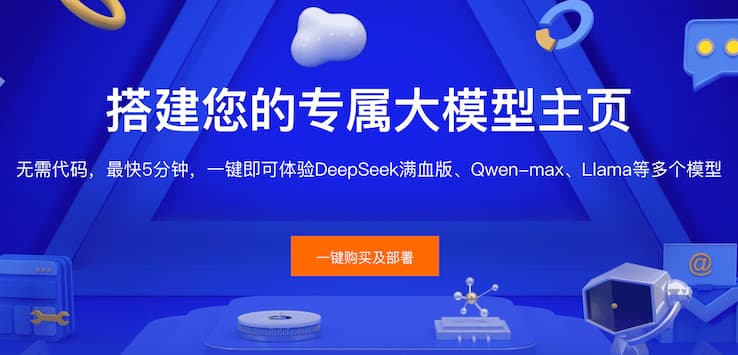Free-QWQ
QWQ API offers developers a one-stop intelligent API interface service, including data APIs and AI capability interfaces, simplifying the development process and enhancing efficiency. Experience efficient and convenient API calls now.
Detailed Introduction
QWQ API —— Efficient and Convenient Intelligent API Service Platform
What is QWQ API?
QWQ API is a website dedicated to providing various intelligent API interface services for developers and data enthusiasts. Users can access various data, tool services, and AI capability interfaces through QWQ API. QWQ API primarily helps users solve problems such as complex interface calls, difficulties in data aggregation, and high barriers to entry for AI services. Its target user groups mainly include website developers, APP development teams, data analysis enthusiasts, and AI innovation project practitioners.
Why Choose QWQ API?
Choosing QWQ API offers users multiple conveniences. Firstly, QWQ API provides a one-stop solution for various types of practical interfaces, eliminating the hassle of searching and connecting in multiple places. Secondly, the platform's interface documentation is standardized and clear, with a low entry barrier, allowing even those without extensive development experience to quickly integrate. QWQ API supports a variety of mainstream data types and application scenarios, with a wide range of applicability. Compared to many similar services, QWQ API focuses on user experience and data stability, with low interface latency, allowing developers to confidently connect to production environments. At the same time, the platform has friendly policies for both individual and enterprise users, offering free quotas and supporting flexible configurations for higher demand scenarios.
Core Features of QWQ API
Intelligent Data Interfaces
QWQ API provides a wealth of data APIs, including weather, translation, courier tracking, stock quotes, etc. Users can directly obtain the latest information, widely applicable to various life services and application development scenarios.AI Capability Interfaces
The platform integrates AI text generation, speech recognition, image recognition, and other AI interfaces. Developers can quickly implement advanced functions such as text summarization and intelligent Q&A without building their own algorithms.Concise Interface Documentation
Each API interface comes with detailed usage instructions and example code, supporting online testing to help users quickly understand and correctly call, reducing debugging workload.Multi-User Permission Management
QWQ API supports team collaboration and multi-user permission management, making it easy for enterprise development teams to allocate interface calls, restrict permissions, and monitor usage.High Concurrency Stability Support
The platform's server architecture supports high concurrent access, with fast interface response times, suitable for large-traffic application integration or batch data needs.
How to Start Using QWQ API?
- Visit the QWQ API official website (qwq.aigpu.cn).
- Register a personal account and log in to the backend management panel.
- Browse or search for the needed API services on the homepage and read the interface instructions.
- Generate a personal API key and make local or cloud calls according to the documentation.
- Check the call examples and API return data to confirm the integration effect.
- If there are team needs, colleagues can be invited to join the team to manage API resources together.
QWQ API Usage Tips
Tip 1: Make Good Use of Interface Debugging Tools
On each API interface page, you can find online debugging tools. Developers can first use this tool to test requests and return results before integrating them into their project code, saving debugging time.Tip 2: Set Call Thresholds and Monitoring
If your project frequently calls APIs, it is recommended to set up call alerts in the backend to keep track of quota consumption and avoid service interruptions.Tip 3: Follow API Update Announcements
QWQ API regularly upgrades or optimizes interfaces. It is recommended to subscribe to announcements or regularly check new documentation to take advantage of better new capabilities.
Frequently Asked Questions (FAQ) About QWQ API
Q: Is QWQ API available now?
A: QWQ API is currently open for registration and interface calls. Users can directly access the official website through qwq.aigpu.cn, register, log in, and immediately enable all open services.
Q: What exactly can QWQ API help me do?
A: QWQ API can help you quickly integrate functions such as weather queries, courier tracking, text translation, AI writing, and intelligent image recognition into websites, APPs, WeChat mini-programs, etc. It is very suitable for projects that need to quickly access various data capabilities and AI services. For example, you can use it to implement automatic content generation, semantic analysis, information aggregation, and other intelligent scenarios.
Q: Do I need to pay to use QWQ API?
A: QWQ API provides some free interface quotas, suitable for developer testing and small-scale use. If there are higher concurrency or data volume needs, you can upgrade to a paid plan to get larger call quotas and dedicated technical support.
Q: When was QWQ API launched?
A: The QWQ API platform was officially launched around the end of 2024, opening related interface services to a wide range of developers and intelligent application scenarios.
Q: Compared to Apifox, which one is more suitable for me?
A: Both QWQ API and Apifox provide API interface capabilities, but they focus on different aspects. QWQ API is more focused on ready-made API interfaces and AI services that can be used immediately, making it very suitable for developers who need direct access to data and complete application functions. Apifox, on the other hand, emphasizes API documentation management, interface collaboration, and automated testing, making it more helpful for enterprise teams with strong API design and development and team collaboration needs. The specific choice depends on whether you need finished APIs more or are more concerned with documentation writing and interface test management.
Q: What development languages and platforms does QWQ API support?
A: QWQ API provides universal HTTP(S) RESTful APIs, supporting mainstream development languages such as JavaScript, Python, PHP, Java, C#, etc. It is also suitable for various front-end, back-end, server-side, mobile, and other development environments, flexibly integrating with various technology stacks.
Q: How does QWQ API ensure data security and privacy?
A: The platform uses HTTPS encrypted transmission, and interface calls require key verification. All data calls strictly comply with privacy protection principles. Users can set access permissions and security policies in the backend to ensure data security.
For more latest information or technical details, it is recommended to directly visit the QWQ API official website or consult its online help documentation.
Related Sites
Comments
Leave a Comment
Share your thoughts about this page. All fields marked with * are required.

